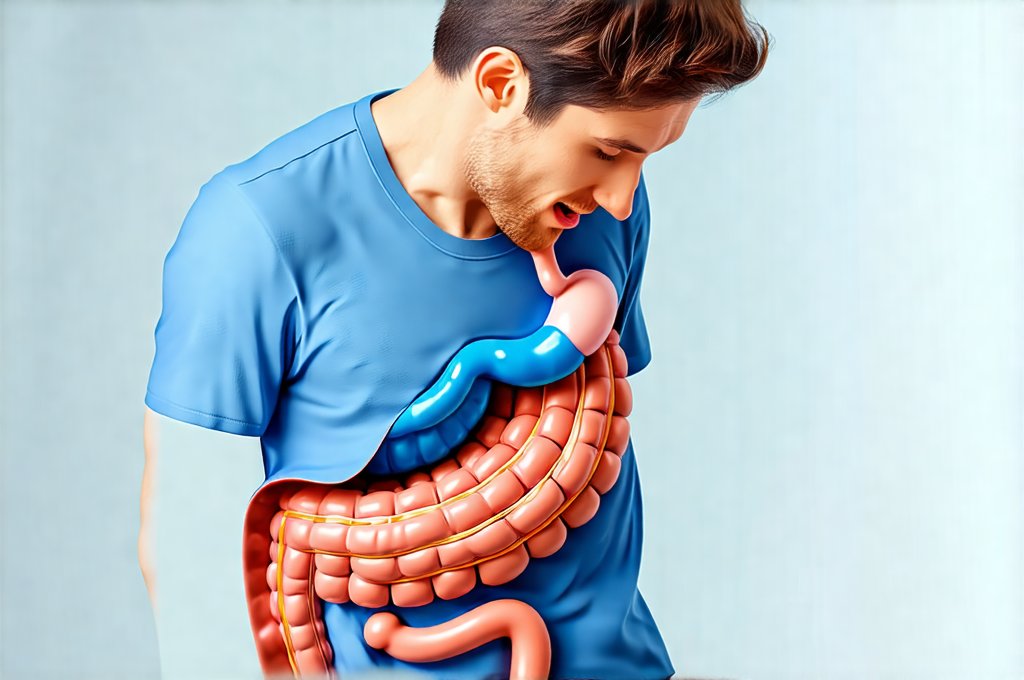Our digestive system is often taken for granted until something goes wrong. We expect it to reliably process everything we throw at it – complex meals, processed foods, stress-inducing schedules – without complaint. But just like any other organ in the body, our gut needs periods of rest and recovery to function optimally. Modern lifestyles frequently prioritize constant activity and readily available food, leaving little room for intentional digestive downtime. This continuous demand can lead to a stressed and overburdened digestive system, manifesting as bloating, discomfort, reduced nutrient absorption, and potentially long-term health issues. Understanding the concept of “digestive rest days” and how to incorporate them into our routines isn’t about deprivation; it’s about giving our bodies the support they need to thrive.
The idea behind digestive rest is surprisingly simple: reducing the workload on your gut allows it to focus on repairing its lining, rebalancing gut flora, and optimizing digestion overall. This doesn’t necessarily mean fasting (though that can be part of it for some), but rather strategically choosing foods that are easily digestible and minimizing highly processed or difficult-to-digest options. It’s about shifting the focus from constant breakdown to absorption and restoration. A rested digestive system is more efficient at extracting nutrients, supporting a stronger immune system, and contributing to improved energy levels and overall well-being. Recognizing that digestion isn’t just about what we eat but also how often we eat and giving our bodies appropriate breaks can be transformative for gut health and beyond. You might find additional insight in bitter foods as well.
Understanding Digestive Fatigue & Its Symptoms
Digestive fatigue isn’t a formally recognized medical diagnosis, but it describes the state of an overworked digestive system that struggles to efficiently process food. It’s becoming increasingly common due to several factors including chronic stress, poor dietary habits (high in processed foods, sugar, and unhealthy fats), irregular eating patterns, and insufficient sleep. When consistently bombarded with difficult-to-digest foods or subjected to ongoing stress, the gut’s natural repair mechanisms become overwhelmed. This can lead to a cascade of symptoms that often go unrecognized as being related to digestion. Understanding gut microbiome balance is also important here.
These symptoms can be surprisingly diverse and may mimic other health problems. Common signs of digestive fatigue include: – Bloating and gas – even after eating relatively small meals. – Abdominal discomfort or cramping – ranging from mild to severe. – Changes in bowel habits – constipation, diarrhea, or alternating between the two. – Food sensitivities that seem to appear out of nowhere. – Low energy levels and chronic fatigue. – Difficulty concentrating (“brain fog”). – Skin issues like acne or eczema. – A weakened immune system, leading to frequent illness. Recognizing these symptoms is the first step towards addressing digestive fatigue and incorporating rest days into your routine. Gut health plays a vital role in recognizing these sensitivities.
Ultimately, a fatigued gut struggles to perform its essential functions effectively, impacting nutrient absorption and potentially contributing to systemic inflammation. Ignoring these warning signs can lead to more serious health problems down the line. Prioritizing digestive rest isn’t a luxury; it’s an investment in long-term health. It allows the intestinal lining to heal, reduces inflammation, and supports a healthy microbiome – all essential components of overall well-being. Consider how digestive enzymes can support this process.
Implementing Simple Digestive Rest Strategies
There are many ways to incorporate digestive rest into your lifestyle without drastically altering your routine. The key is gentle reduction in digestive workload rather than aggressive restriction. Here are some practical strategies: 1. Mindful Eating: Pay attention to how you eat, not just what you eat. Chew your food thoroughly, savor each bite, and avoid distractions like screens or stressful conversations. This helps break down food more efficiently before it reaches the stomach and intestines. 2. Hydration: Drink plenty of water throughout the day, but avoid drinking large amounts during meals as this can dilute digestive enzymes. 3. Food Choices: Focus on easily digestible foods (more on that below). 4. Meal Timing: Avoid eating late at night when your body is preparing for rest and repair. Allow several hours between dinner and bedtime. A digestive reset can be incorporated into this schedule.
Easily digestible food choices include: – Steamed or boiled vegetables – carrots, zucchini, spinach. – Lean proteins – fish, chicken breast (baked or grilled), tofu. – Easily digested carbohydrates – white rice, sweet potatoes, oats. – Bone broth – rich in collagen and amino acids to support gut healing. – Fermented foods (in moderation) – yogurt, kefir, sauerkraut – to introduce beneficial bacteria. Avoid difficult-to-digest foods like: – Processed foods – high in additives and unhealthy fats. – Sugary drinks and snacks – contribute to inflammation and disrupt the microbiome. – Greasy or fried foods – hard for the gut to process. – Spicy foods – can irritate the digestive system. – Excessive caffeine and alcohol – interfere with digestion and hydration.
The frequency of digestive rest days will vary depending on individual needs and lifestyle factors. Some people may benefit from one day a week, while others might require more frequent breaks. Start by incorporating one “lighter” day per week where you focus on easily digestible foods and mindful eating practices. Pay attention to how your body responds and adjust accordingly. Consistency is key. Even small changes can make a significant difference over time.
The Role of Intermittent Fasting & Gut Microbiome Support
Intermittent fasting (IF) can be a powerful tool for digestive rest, but it’s important to approach it carefully and listen to your body. IF involves cycling between periods of eating and voluntary fasting on a regular schedule. During the fasting period, your digestive system gets a complete break from processing food, allowing it to focus on repair and restoration. However, IF isn’t right for everyone, and it’s crucial to consult with a healthcare professional before starting any new dietary regimen, especially if you have underlying health conditions. Food sensitivity can affect how IF impacts an individual.
Different types of IF protocols exist: – 16/8 method – fasting for 16 hours each day and eating within an 8-hour window. – 5:2 diet – eating normally five days a week and restricting calories to around 500-600 on two non-consecutive days. – Alternate-day fasting – alternating between days of normal eating and days of restricted calorie intake. When incorporating IF for digestive rest, start slowly and gradually increase the duration or frequency of your fasts. Pay attention to how you feel and adjust accordingly. Remember that quality food choices are still important during your eating window.
A healthy gut microbiome is crucial for optimal digestion and overall health. Digestive rest days provide an opportunity to support a thriving microbiome: – Probiotics: Consume probiotic-rich foods like yogurt, kefir, sauerkraut, or kimchi (if tolerated). Consider a high-quality probiotic supplement after consulting with a healthcare professional. – Prebiotics: Feed your gut bacteria with prebiotic-rich foods like onions, garlic, leeks, asparagus, and bananas. Prebiotics are essentially food for probiotics. – Fiber: Adequate fiber intake supports a diverse microbiome. Choose whole grains, fruits, and vegetables. – Minimize Antibiotics: Excessive antibiotic use can disrupt the gut microbiome. Only take antibiotics when absolutely necessary and under the guidance of a healthcare professional. A balanced gut microbiome is essential for efficient digestion, nutrient absorption, and immune function. Digestive rest days offer an ideal opportunity to nurture this vital ecosystem within our bodies. Digestive enzymes can also play a role here.


















